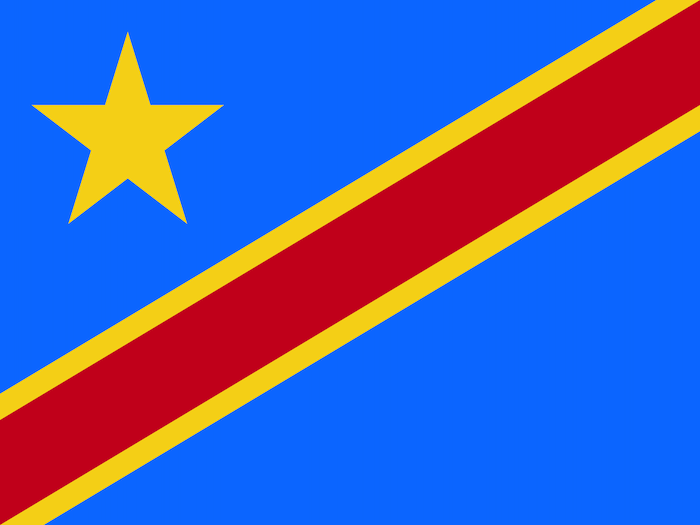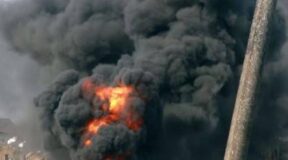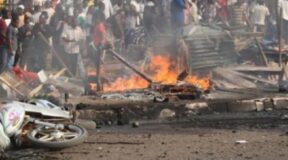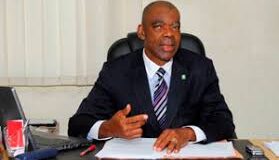Humanitarian Disaster In North Kivu Worries MSF
OpenLife Nigeria reports that a an international medical organization Doctors Without Borders also known as Médecins Sans Frontières, MSF, is worried about humanitarian disaster underway in North Kivu province, in eastern Democratic Republic of Congo, DRC.
MSF has called on the international community and the Congolese authorities to scale up efforts to meet the needs of people affected by armed clashes.
About one million people have fled fighting linked to the resurgence of the M23 armed group in North Kivu over the past year. The humanitarian response so far has been vastly inadequate, MSF said, leaving people highly vulnerable to health risks including cholera, measles, malnutrition and sexual violence.
“The crisis in North Kivu has become utterly shocking in its scale and severity, but the humanitarian response is far too slow in too many places,” said Avril Benoît, executive director of MSF-USA, currently working in Goma. “There is a glaring lack of aid reaching people with basic needs for shelter, medicine, food, and drinking water. We see that the health impacts are enormous and growing.”
Poor living conditions
In just the past few months, hundreds of thousands of people have fled their homes and villages to live with host families or in informal sites. Around Goma, the capital of North Kivu, makeshift tents made of plastic sheets or mosquito nets stretch as far as the eye can see, while other people are staying in churches and schools.
MSF teams have been working in informal displacement sites around Goma since May 2022, providing free medical care, trucking in supplies of drinking water, and constructing latrines and showers, but this is not enough. In Bulengo, an informal settlement a few miles west of Goma, there is just one latrine for almost 500 people—less than one-tenth of what people need in a humanitarian emergency. In the neighboring settlement of Lushagala, displaced people are surviving on just over one liter of clean water per day, which is far below the standard of 15 liters per day.
About 3,000 shelters, currently accommodating some 15,000 people, have been built in the past year on the outskirts of Goma, but these numbers are small compared to the scale of people’s needs.
“This is a drop in the ocean compared to the hundreds of thousands of displaced people who are currently camping out around the city’s gates,” said Abdou Musengetsi, MSF project coordinator in Goma. “Families have been at the mercy of rains, epidemics and violence for months, as shown by the worrying number of victims of sexual violence that we treat every day in our medical facilities.”
Risk of outbreaks
Inadequate and overcrowded shelters and a lack of clean water and latrines create ideal conditions for diseases to spread. In recent months, measles and cholera broke out in sites north of Goma, in Nyiragongo territory, while the health situation has now become critical in Bulengo and Lushagala, with suspected cases of measles and cholera multiplying over the past few weeks. In March, MSF treated almost 2,500 patients with cholera symptoms and over 130 children with measles in Bulengo alone.
“It’s a shocking situation,” said Raphaël Piret, MSF’s country representative in DRC. “Our teams are working around the clock to fight cholera and deal with the growing cases of measles, but they are completely overwhelmed. Faced with the humanitarian and health disaster unfolding before our eyes, stepping up assistance to the displaced people—both in Goma and elsewhere—is a matter of urgency.”
Today, an estimated 2.5 million people are displaced throughout North Kivu province, according to the UN. As the fighting continues, still more people may be forced from their homes and require aid to survive.
Restricted access to health care
North of Goma, MSF teams are also seeing the consequences of the crisis in Masisi, Rutshuru and Lubero territories. As the front lines of the fighting have shifted, most of the major routes into the region have been cut off. Transport links into this agricultural region, known as “the granaries of the province,” are essential for trade in North Kivu. Isolated from the rest of the province, inhabitants have been unable to sell their crops or to buy all but a few essential products, which have doubled in price.
Many medical facilities have run out of medications due to supply problems. In Rutshuru territory, for instance, some health centers have not received any medicines for months. In these territories, accessing health care was already difficult but is now even more challenging due to the lack of functioning health facilities and to the cost of medical care, which is unaffordable for many in the current economic crisis.
Food insecurity is also worsening in the province. More than one-third of North Kivu’s population are currently at risk, according to the UN. The health centers that MSF supports in Rutshuru territory treated more than 8,500 malnourished children in 2022, an increase of almost 70 percent from 2021.
In Rutshuru, Lubero and Masisi, there is a glaring lack of organizations providing much-needed aid.
“It feels as if people here have been abandoned,” said Monique Doux, MSF project coordinator in Rutshuru. “For months, MSF has been the only humanitarian organization working in Rutshuru territory, but the needs of the inhabitants far exceed our capacity to respond.”
MSF launched an emergency response to provide medical care to displaced people in Rutshuru territory in April 2022. After the first influx of displaced people arrived in Goma in May 2022, MSF emergency teams provided medical care, set up water supplies and improved hygiene conditions in informal displacement sites, first in Munigi and Kanyaruchinya, and more recently in Bulengo and Lushagala. In February 2023, MSF teams provided medical care and humanitarian aid to some 30,000 temporarily displaced people in the city of Mweso. MSF teams are currently strengthening their response to displaced people in Kayna, Lubero territory, and in Minova (South Kivu).
Meanwhile, MSF medical teams are maintaining their regular activities in Goma, Rutshuru, Kibirizi, Bambo, Binza, Mweso, Masisi and Walikale, providing essential medical care to thousands of people across North Kivu province.







